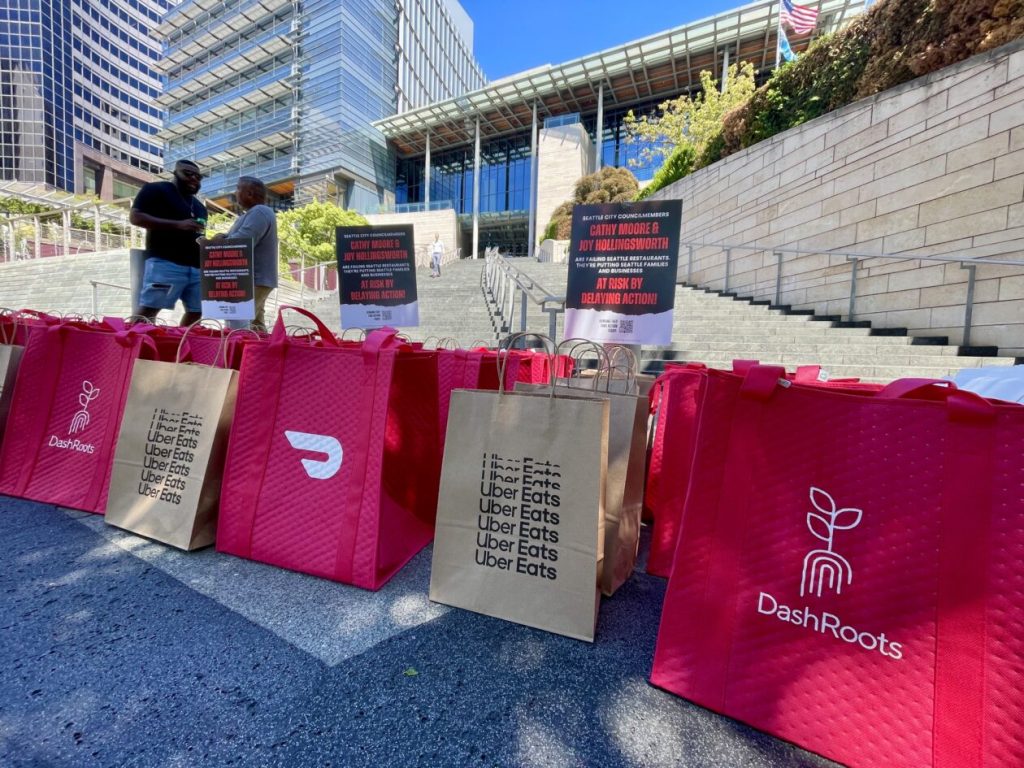Seattle City Hall Meeting Highlights New Charges for DoorDash Delivery Drivers
Seattle City Hall recently held a media event titled Driven Work: Addressing the Future of Delivery Women in response to growing concerns over fare increases for DoorDash delivery drivers. DoorDash, a platform catering to gig workers operating through delivery apps such as Google Maps, is implementing new charges to decrease its revenue losses in the Seattle market. This move comes on the heels of a mayor and city council meeting aimed at increasing service fees on all DoorDash orders starting in May.
The Courtiers ofrepresented by the new charges: DoorDash, which reported $3 billion in revenue during the first quarter, urges the city to reduce fares, a move by the city’sober (a local tax) to balance tough competition with labor protections. Earlier this year, DoorDash’s CEO expressed concern over the large-scale workplace dilation caused by the rise of gig shops, calling the competition in the U.S. as expensive as more expensive regions like San Francisco and making fewer employees’ rights protected compared to directly compete with the city’s lawful businesses.
The new law began to take effect in January: The Seattle City Council passed a new law, numbered Seattle City ordinance 2023-89, which applies to gig workers and others using delivery apps to deliver food, shop for groceries, and deliver services. The ordinance requires companies to provide 14-day notice of deactivation and must base these on reasonable policies.ゆっくり misOwners are subject to legal consequences if they are indoors during work hours, and deactivations are subject to scrutiny to maintain worker rights.
The/dirters have faced opposition: critics argue that parking Rules of enforcement, like international staffing laws, go too far. Uber and Instacart, both competitors under the DoorDash umbrella, filed a lawsuit in January to object to倾斜 unfair deactivations regardless of conditions, citing constitutional concerns.
Regulatory challenges remain: While the legal landscape in many states focuses on protecting workers from unjust treatment, the city’s bill is ambitious. To extend the law, companies have faced significant hurdles. Under the current legal framework, companies are not subject to the same disparities as fixed-price firms. Lapizers argued that this零部件 regulation is essential to safeguard worker rights, even at离不开 the increasing challenges of tackling a diverse and large industry.
Economic implications: Costs for DoorDash and other contenders likely rise, with new fees expected to boost average monthly revenue reduction of 2% a year by 2026. However, the legal push could fragment services, exposing competitors to greater backlash from workers and investors. Let me see if my summary captures the essence of the article without missing key points.
The media event in Seattle shed light on the ongoing battle between g Iterators to minimize cost and lionize those with legitimate rights, reflecting a broader legislative effort to bring regulation and transparency back to thenkier. DoorDash, in its blog_post, corroborated the push, citing increased fraud and lower pay as justifications for the charge. Ultimately, the legal reforms attempt to strike a balance between economic viability and labor protections, yet the权力 in governings within delivery industries exposes underneath the government’s promises.


